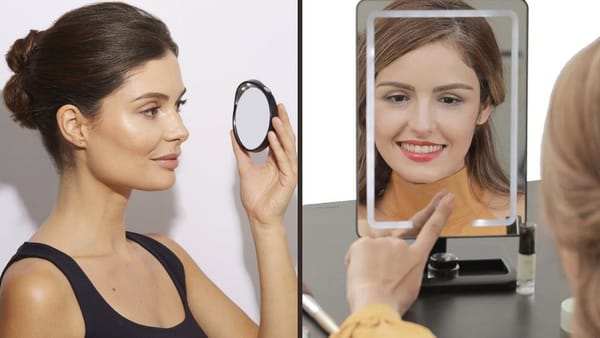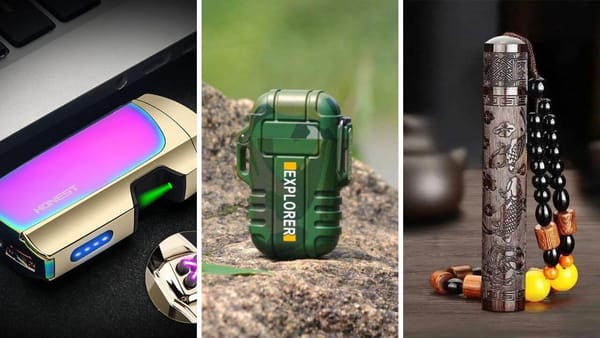Key Takeaways:
- Solar Christmas lights are designed to be left on all night and are equipped with light sensors for automatic operation.
- Proper maintenance and positioning can maximize the efficiency and lifespan of solar-powered Christmas lights.
- Safety concerns are minimal with solar lights, but it's essential to consider weather conditions and battery health.



Solar Christmas lights have become a popular choice for holiday decorations, offering an eco-friendly and cost-effective alternative to traditional electric lights. As the festive season approaches, many homeowners ponder the question, "Is it ok to leave solar Christmas lights on all night?" This article will delve into the intricacies of solar-powered Christmas lights, their functionality, and best practices for use.
Understanding Solar Christmas Lights
Solar-powered Christmas lights operate using the photovoltaic effect, where solar panels convert sunlight into electricity. This energy is stored in batteries during the day and used to power LED bulbs when it gets dark.
Most solar Christmas lights are designed with a light sensor that automatically triggers the lights to turn on at dusk and off at dawn, making them incredibly convenient for outdoor decorations.
The Role of Light Sensors and Solar Cells
The light sensor, also known as a photoreceptor, plays a crucial role in the operation of solar lights. It detects the level of ambient light and determines when to activate or deactivate the lights.
Solar cells, on the other hand, are responsible for capturing sunlight. The efficiency of these cells directly impacts how much light is converted into electricity and, consequently, how long the lights can operate during the night.
Battery Life and Charging Efficiency
Battery life is a significant factor in the performance of solar-powered lights. A fully charged battery ensures that the lights can function for several hours, typically throughout the night.
To achieve a full charge, the solar panels must receive direct sunlight for a sufficient amount of time during the day. Weather conditions and the location of the solar panels are two factors that affect this charging process'sSolar-Powered efficiency.
Weather Considerations for Solar Lights
Weather plays a pivotal role in the functionality of solar lights. On sunny days, solar panels can absorb more energy, leading to a longer illumination time at night.
However, during the winter months, shorter days and conditions like snow, rain, or heavy cloud cover can limit the amount of sunlight the panels receive, potentially reducing the lights' operational time.
The Safety of Solar Lights
One of the advantages of solar-powered Christmas lights is their safety. Unlike traditional lights that require an extension cord and an electrical outlet, solar lights pose a minimal fire hazard.
They are designed to be left unattended without the risk of overheating or sparking. This makes them an ideal choice for outdoor lights that need to stay on for extended periods.
Solar-Powered Christmas Lights: A Sustainable Choice
Have you ever wondered if your festive cheer could be more eco-friendly? Solar-powered Christmas lights are not just a twinkling addition to your holiday decor; they're a step towards sustainability. By harnessing the power of the sun, these lights reduce the carbon footprint associated with traditional holiday lighting.
Most solar lights are designed to be as efficient as possible, converting sunlight into energy through a solar panel during the day to power the lights when the stars come out.
But how do these solar lighting systems fare against their electric counterparts? Quite well, actually! Solar-powered lights are not only kind to the planet but also to your wallet.
Once you've made the initial investment in your outdoor solar lights, the sun takes over the job of your electricity provider. This means that after the solar lights stay out all day, soaking up the sun, you can enjoy the festive glow without worrying about a spike in your energy bill. And with advancements in technology, new lights are more reliable and longer-lasting than ever before.



Solar Light Performance in Extreme Temperatures
Have you ever wondered how your solar lights hold up in the sweltering summer heat or during a cold snap? It's a valid concern, especially when you're investing in decorations meant to last. Solar lights are designed to withstand a range of temperatures, but extreme heat can be a challenge.
When it's hot outside, the efficiency of solar panels can decrease, meaning your lights might not charge as effectively during the day. This doesn't mean they'll fail, but it's something to keep in mind when temperatures soar.
Conversely, cold weather can actually improve solar panel performance, as long as the panels are clear of snow and ice. However, the battery within your solar light setup might not share the same resilience.
Batteries can lose their charge more quickly in cold conditions, which might mean your lights won't stay bright throughout the night. It's a delicate balance, but manufacturers are continually improving technology to ensure your solar lights can handle whatever the weather throws at them.
The Evolution of Solar Light Bulbs
The humble bulb has come a long way in the world of solar lighting. Initially, solar lights were equipped with incandescent or fluorescent bulbs, which weren't the most energy-efficient options.
However, with the advent of LED technology, solar Christmas lights have become much more durable and long-lasting. LEDs are not only brighter but also consume less power, which means they're perfect for pairing with solar cells.
This is a game-changer for those who want to keep their festive lights on all week without worrying about energy consumption or bulb replacement.
LEDs also have the advantage of staying cool to the touch, even after hours of operation. This is particularly important during the hot summer months when you want to avoid any additional heat sources.
With LED bulbs, your solar Christmas lights are more likely to remain consistent in performance, providing that warm holiday glow night after night. As technology progresses, we can only expect these bulbs to become even more efficient, making solar lights an even more attractive option for holiday decorators.
Adapting Solar Lights to Your Climate
When considering solar-powered Christmas lights, it's crucial to think about the climate you live in. If you're in a region that enjoys plenty of sunshine, even in the winter months, you're in the perfect spot to take full advantage of a solar lighting system.
However, if you're in a place where the sun plays hide and seek, you'll need to determine if solar is the right choice for you. Most solar lights need a good amount of sunlight to fully charge, which can be a challenge during the shorter days of winter.
But don't let a little cloud cover deter you! Many solar-powered lights come equipped with technology to maximize whatever sunlight is available. And let's not forget about the wind. While a gentle breeze won't affect your lights, a strong wind can knock over or damage your fixtures if they're not properly secured.
So, when you're setting up your outdoor solar lights, make sure they're anchored well and positioned to catch as much sunlight as possible, even on those not-so-sunny days. This way, your lights turn on every night, creating a warm, inviting atmosphere, regardless of the weather.



The Impact of LED Bulbs
LED bulbs are a key component of solar Christmas lights. They are known for their energy efficiency and long lifespan.
LED bulbs consume less power than traditional bulbs, which means they can stay bright for the entire night without draining the batteries too quickly.
Additionally, LED bulbs are durable and can withstand harsh weather conditions, making them suitable for outdoor use.
Maximizing the Lifespan of Solar Lights
To ensure the typical lifespan of solar lights is reached, it's important to maintain them properly. This includes cleaning the solar panels regularly to remove any dirt or debris that could block sunlight.
It's also advisable to replace the batteries every few years to maintain optimal performance. Taking these steps can help extend the life of your solar Christmas lights and keep them shining bright each holiday season.
Best Practices for Using Solar Christmas Lights
When using solar Christmas lights, it's best practice to position the solar panels in an area where they will receive the most direct sunlight throughout the day. This will help the batteries become fully charged and ready to power the lights all night.
Additionally, consider using a timer or lighting modes that match your holiday schedule to conserve energy when the lights are not needed.
Choosing the Right Solar Lights for Your Home
When looking to purchase solar Christmas lights, it's important to consider the quality of the solar panels and batteries.
Look for lights that offer multiple lighting modes and have a robust design to withstand the elements. Brands like Joomer Solar Christmas Lights are known for their efficiency and durability, making them a popular choice among consumers.
Solar Lights and the Holiday Season
During the holiday season, solar Christmas lights can add a festive touch to your house and yard without increasing your electricity bill.
They are an environmentally friendly option that harnesses green energy to create a warm white glow or bright, colorful illumination.
With the right setup, solar string lights and other solar-powered decorations can create a magical atmosphere that lasts all night.
The Verdict on Solar Lights at Night
In conclusion, it is perfectly fine to leave solar Christmas lights on all night. They are designed to operate safely and efficiently for extended periods, thanks to their built-in light sensors, efficient solar cells, and LED bulbs.
As long as they are properly maintained and positioned to receive adequate sunlight, solar Christmas lights can provide a hassle-free and sustainable way to celebrate the festive season.
Summary
Solar Christmas lights are a safe, efficient, and eco-friendly option for holiday decorations. They are equipped with light sensors and solar cells that allow them to function automatically from dusk to dawn.
With proper positioning and maintenance, these lights can illuminate your outdoor space throughout the night without any safety concerns. By choosing high-quality solar lights and following best practices, you can enjoy a bright and festive holiday season with minimal impact on the environment.



FAQ Section
How long do solar Christmas lights last when fully charged?
Most solar Christmas lights can last for several hours on a full charge, typically enough to stay on throughout the night. The exact duration will depend on the battery capacity and the efficiency of the solar panels.
Can solar Christmas lights withstand winter weather?
Yes, many solar lights are designed to function in various weather conditions, including snow and rain. However, extreme weather may affect the charging efficiency and illumination time.
Is it necessary to turn off solar Christmas lights during the day?
No, solar Christmas lights are equipped with light sensors that automatically turn the lights off during the day and charge the batteries using sunlight. There is no need to manually turn them off.
Be sure to check out our article on the best solar outdoor Christmas decorations for your holidays!













